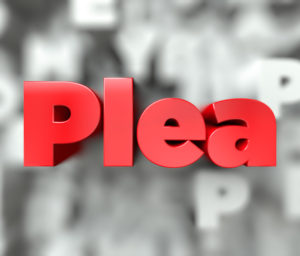
Not every criminal case ends with a judge or jury member reading off a verdict. In fact, a good portion of cases never get that far because both sides end up agreeing to a plea deal. But what exactly is a plea deal, and should you accept one for your case? We answer those questions in today’s blog.
Understanding Plea Deals
A plea deal is an agreement between the prosecution and the defense in which the defendant agrees to plea guilty to a reduced charge in return for the more serious charges being dropped by the prosecution. Oftentimes they are seen as a win-win for both sides, and here’s why.
What The Prosecution Gets – Criminal cases take time, money and other resources, and even in the most straightforward cases, there’s no guarantee that the prosecution will earn a conviction. If they get the defense to agree to a plea deal, it is considered a conviction, which goes on their record. They also don’t have to devote any more resources or time on the case, and they know that a plea deal ensures that the defense will have to face some penalties for their actions. Instead of taking a chance on trial, they get a known result.
What The Defense Gets – The defense also wins a bit when it comes to accepting a plea deal. They get to avoid a more serious charge that carries stiffer penalties, and they have a little bit of negotiation power when it comes to their sentence. They can’t necessarily pick and choose their punishment, but avoiding a DUI conviction by pleading to reckless driving will result in a reduced likelihood of jail time, a lengthy license suspension or a huge fine. They can try to push for conditions like supervised release (to go to work if sentenced to home monitoring) or extra community service in lieu of jail time. They also can save on legal fees by avoiding a lengthy court case.
Should I Take A Plea Deal?
A number of people have asked us “Should I take the plea deal that’s being offered?” and we try to provide them with the best answer possible. It all comes down to the evidence against you and what the prosecution can prove in court. The court system is designed to ensure that defendants don’t accept a plea deal without knowing all the facts of the case, which is why judges are required to ask defendants during a plea hearing if they understand the case facts and if they are satisfied with their legal counsel.
There are pros and cons to plea deals, but remember that a plea is still considered a conviction under the eyes of the law. If you didn’t commit the act in question or do not want the plea conviction on your record, talk to your lawyer about taking the case to trial. A good lawyer will always look into plea options, but that doesn’t mean they are always in your best interest. If you’re wondering whether you should take a plea deal, talk to a criminal defense lawyer about your case.





